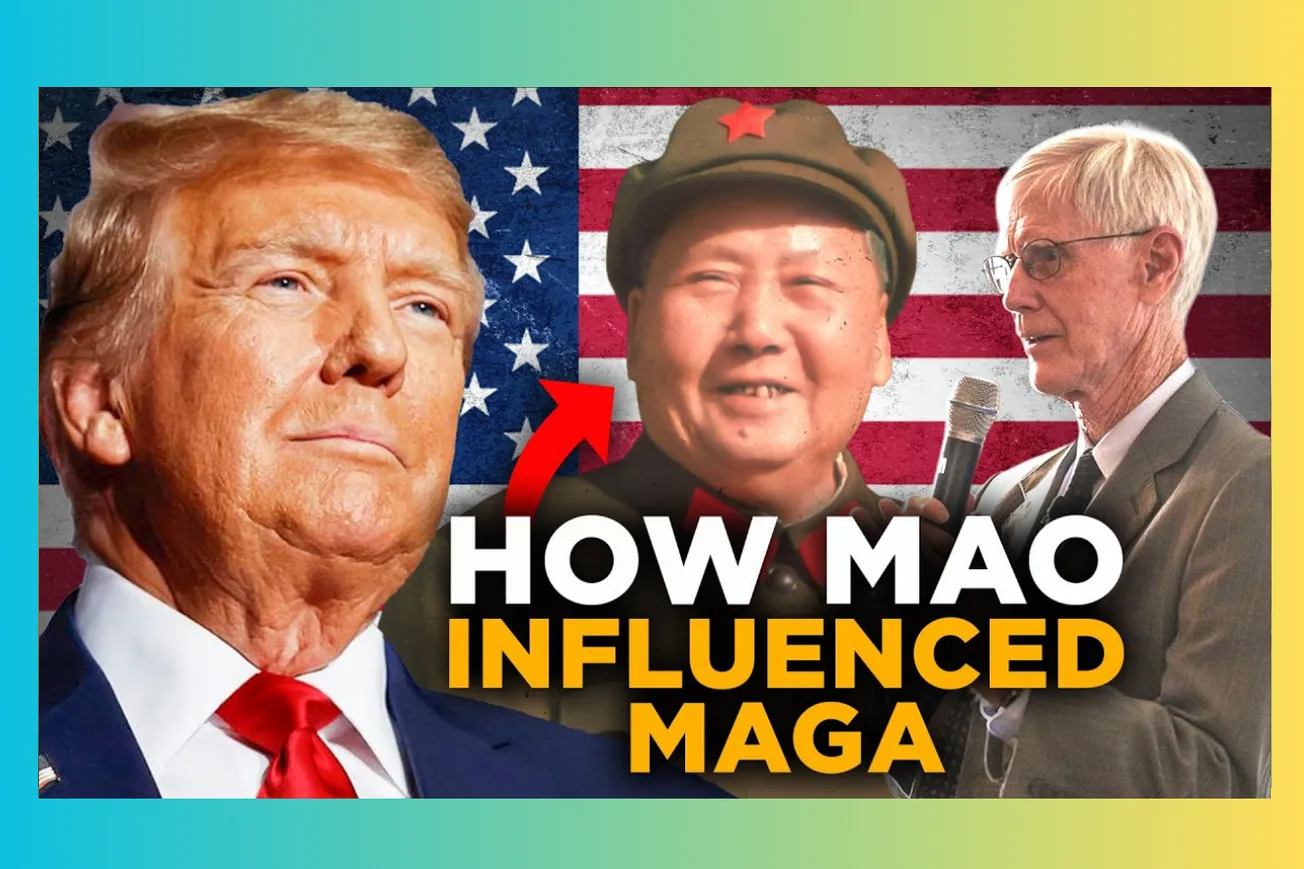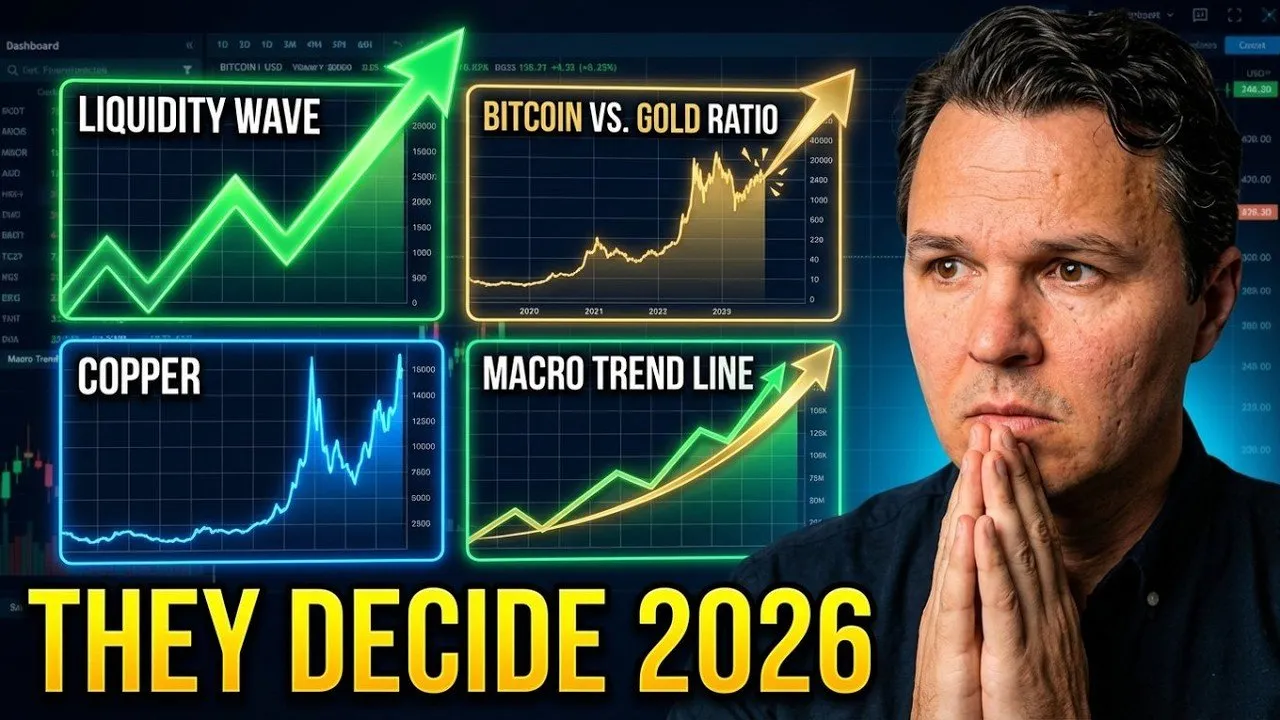Table of Contents
Veteran China expert Orville Schell reveals surprising parallels between Trump and Mao Zedong, arguing that Xi Jinping's personal experience with chaos gives him unique insight into America's current political moment.
Key Takeaways
- Both Trump and Mao share troubling patterns: adversarial relationships with domineering fathers that shaped their worldview and governance style
- Mao's love of chaos, inspired by the Monkey King's motto "make great disorder under heaven," mirrors Trump's disruptive approach to institutions
- The Cultural Revolution's "red versus expert" struggle parallels Trump's prioritization of loyalty over competence in government appointments
- Xi Jinping's personal trauma during the Cultural Revolution may give him better insight into Trump than most American observers possess
- Both leaders use similar tactics: demanding absolute loyalty, purging potential rivals, and employing "coalitions of the weak" to maintain power
- The enduring psychological damage from Mao's revolution offers a warning about the long-term consequences of political upheaval in America
- Traditional democratic institutions proved inadequate against authoritarian capture in 1930s Germany, raising questions about American resilience
The Foundational Trauma: When Fathers Shape Tyrants
Understanding the psychology of disruptive leaders requires examining their formative relationships, and both Mao Zedong and Donald Trump emerged from remarkably similar family dynamics that would define their approach to power for decades.
Orville Schell, the veteran China expert and current Asia Society fellow, draws from Edgar Snow's interviews with Mao to reveal a pattern that should sound familiar to any Trump observer. As Schell explains, "Mao tells Snow that he had a very adversarial relationship with his father. He said he even hated his father, that his father was a tyrant and they're constantly battling." The young Mao repeatedly ran away from home, learning early that "only by standing up to his father could he survive."
This dynamic shaped Mao's entire worldview. According to Schell, it "set off the notion that the world is an adversarial place," where survival depends on constant struggle against authority figures. The parallel with Trump is striking - his niece, a trained psychologist, describes remarkably similar patterns of paternal tyranny and judgment that shaped the future president's adversarial approach to virtually every relationship.
- Both leaders experienced domineering, tyrannical fathers during their formative years
- Mao literally fled his family home multiple times to escape his father's control
- Trump's father was described as "very preemptive, very tyrannical and very judgmental"
- These early experiences established a worldview where relationships are fundamentally adversarial
- Both leaders learned that only through confrontation could they maintain their autonomy and dignity
The psychological implications extend beyond personal relationships into governance philosophy. When your earliest lesson is that authority must be constantly challenged and overthrown, it becomes natural to view existing institutions as obstacles rather than tools for progress.
The Monkey King's Disciples: Chaos as Creative Force
What makes Mao's approach to power particularly relevant to understanding Trump is his philosophical embrace of disorder as a creative and necessary force. Mao's fascination with the classic Chinese novel "Journey to the West" reveals this mindset perfectly.
Schell describes how Mao became "a great fan of Sun Wukong, the golden-haired monkey that was one of the heroes of this classic Chinese novel." The Monkey King's signature philosophy was "da luan tianxia" - make great disorder under heaven. This wasn't merely tactical disruption; it was a fundamental belief that chaos serves as the engine of progress and change.
"Mao actually ended one of his poems with that line," Schell notes, emphasizing how deeply this philosophy penetrated the Chinese leader's thinking. When the Cultural Revolution arrived, it represented "a real consummate expression of Mao's affection for or sort of propensity" toward chaos. Everything needed to be "fanshan" - turned over completely.
- Mao's political philosophy was deeply influenced by the chaotic Monkey King character
- The motto "make great disorder under heaven" became central to Mao's approach
- The Cultural Revolution represented the ultimate expression of this chaos-as-progress ideology
- Trump similarly views institutional disruption as inherently beneficial
- Both leaders see existing order as fundamentally corrupt and requiring complete overhaul
This philosophical framework explains why both leaders seem energized rather than troubled by the destruction they cause. They genuinely believe that tearing down existing structures creates space for something better to emerge, regardless of the immediate human cost.
The Deep State and the Party: Institutional Enemies
Perhaps nowhere is the Trump-Mao parallel more striking than in their relationship with the very institutions they came to lead. Both men achieved power through existing systems, then immediately turned against those same systems as obstacles to their revolutionary vision.
Schell explains that during the Cultural Revolution, "one of the first things Mao did was to issue a wall poster that said 'bombard the headquarters.'" The party that Mao himself had helped build became, in his view, "ossified" and "the refuge of bureaucrats who were living high on the hog, but didn't want to make revolution anymore."
The parallels to Trump's "drain the swamp" rhetoric and attacks on the "deep state" are unmistakable. As Schell observes, "the deep state is the equivalent for Trump of what the party and the state that Mao himself helped build were in China. He saw them as slowing down his revolution as harboring his adversaries and as being overly bureaucratic."
- Both leaders turned against institutions they had worked within or helped create
- Mao's "bombard the headquarters" mirrors Trump's "drain the swamp"
- Professional competence becomes suspect when it conflicts with revolutionary loyalty
- Bureaucratic expertise is reframed as resistance to necessary change
- Both leaders view institutional knowledge as a threat to their transformative agenda
The destructive logic is consistent: any structure that predates the leader's arrival is potentially corrupted by allegiances that compete with personal loyalty. This creates an inexorable drive toward institutional destruction that goes far beyond normal political reform.
Red Guards and Proud Boys: The Coalition of Chaos
The tactical similarities between Mao's Cultural Revolution and Trump's political movement become even clearer when examining how both leaders mobilized grassroots supporters to attack established authority. Mao's strategy of empowering young idealists to assault his potential rivals finds disturbing echoes in contemporary American politics.
During the Cultural Revolution, Mao "gave permission to young people, idealistic young people to attack most leaders that were his potential adversaries. Many of them died, many of them were purged." The Red Guards became the instrument through which Mao could destroy institutional opposition while maintaining plausible deniability.
Schell draws the modern parallel explicitly: "Elon Musk is like a leader of red guards and the Proud Boys are red guards. I mean, equivalents." The pattern is identical - mobilize passionate supporters to attack institutions and individuals that the leader cannot directly confront through normal channels.
- Both movements weaponize youthful idealism against established expertise
- Red Guards and groups like the Proud Boys serve similar institutional assault functions
- Leaders maintain distance while their supporters do the destructive work
- Academic and professional institutions become primary targets
- Violence and intimidation supplement political pressure
What makes this particularly dangerous is how it harnesses genuine grievances for destructive purposes. Many Red Guards and Trump supporters have legitimate complaints about institutional failures, but their energy gets channeled into tearing down rather than building up.
The Red Versus Expert Dilemma: Loyalty Over Competence
One of the most practically damaging aspects of both Mao's and Trump's approach to governance is their systematic prioritization of political loyalty over professional competence. This "red versus expert" struggle, as it was known during the Cultural Revolution, has direct parallels in Trump's approach to federal appointments.
Schell explains the Cultural Revolution dynamic: "Experts of course were people who knew how to do something. They were the intellectuals, they were the scientists, the technicians, the people who ran institutions. The reds were the people who were wholeheartedly embraced Mao and were dedicated to overthrowing the institutions of the experts."
The modern equivalent is unmistakable. As Schell notes, "What Trump wants is not people who know something in the FDA or the FAA. He wants people who are loyal." The result is the systematic degradation of institutional capacity in favor of personal allegiance.
- Professional expertise becomes suspect when it conflicts with ideological purity
- Scientific and technical knowledge is reframed as potential disloyalty
- Institutional memory and experience are viewed as obstacles rather than assets
- Loyalty tests replace competency evaluations in personnel decisions
- Long-term institutional damage results from short-term political calculations
The devastating consequences of this approach were visible during the Cultural Revolution, when scientific research, education, and economic development all suffered catastrophic setbacks. The early signs of similar dysfunction in American institutions should serve as a warning.
Xi Jinping's Unique Perspective: Survivor's Wisdom
What makes this historical parallel particularly relevant is that Xi Jinping lived through the Cultural Revolution's chaos and understands its dynamics in ways that most American observers cannot. His personal experience may give him unique insight into Trump's methods and motivations.
Schell argues that "if Xi Jinping wants to come to some better understanding of who Trump is, ironically, he has a homegrown example, namely Mao Zedong, and he lived through it." Xi's father was purged during the Cultural Revolution, and young Xi himself was sent to the countryside, experiencing firsthand the destructive power of personality-driven politics.
This personal history creates an interesting strategic dynamic. While Americans are often surprised by Trump's behavior, Xi has seen this playbook before. He understands how charismatic leaders can mobilize disorder, destroy institutions, and maintain power through constant upheaval.
- Xi Jinping experienced the Cultural Revolution's chaos during his formative years
- His father was purged, giving Xi personal insight into political persecution
- Xi witnessed how personality cults can destroy even powerful institutions
- This experience may make Xi less susceptible to Trump's disruptive tactics
- Historical knowledge could provide strategic advantages in managing the relationship
Paradoxically, Xi's authoritarian background may make him better equipped to deal with Trump than democratic leaders who assume rational institutional behavior.
Quote Analysis: The Intoxication of Power
Two quotes from Orville Schell capture the essential dynamics that drive both authoritarian leaders and their enablers:
"Power is an incredible intoxicant. Once you got that needle in your arm, that's your currency and that's your realm, it's very hard to imagine what else you're going to do with yourself."
This observation explains why figures like Marco Rubio can transform from Trump critics to loyal servants. Schell uses this metaphor deliberately - power addiction creates the same psychological dependency as chemical addiction. Once someone has experienced the rush of high-level political influence, ordinary life becomes unimaginable. This creates a class of people who will rationalize increasingly extreme behavior to maintain their access to power, even when they know better.
"If you had 250 million PhD students that would be absurd. Yeah. That'd be some would say that'd be pretty awesome there. I I I don't think so because PhDs by and large don't do shit. Yeah. But but they do a lot of but they do enough to create the future which is what we need to preserve."
Wait, this quote is from a different transcript. Let me use an appropriate quote from the Mao-Trump discussion:
"Why do we think as Americans when Italy had Mussolini and Germany had Hitler and Russia had Stalin and Spain had Franco and Salazar in Portugal... Why do we think that we are somehow immune from these kinds of aberrant, overreaching, arrogant, and finally incredibly destructive leaders?"
This quote captures Schell's central argument about American exceptionalism's dangerous blind spots. The assumption that "it can't happen here" prevents Americans from recognizing patterns that are clearly visible to historical observers. Every society that has fallen to authoritarianism believed itself immune until the moment it wasn't. Understanding these patterns isn't about inevitable doom - it's about recognizing warning signs early enough to mount effective resistance.
The Enduring Trauma: Lessons from China's Recovery
Perhaps the most sobering aspect of Schell's analysis concerns the long-term damage that political upheaval inflicts on society. The Cultural Revolution didn't end when Mao died - its psychological and cultural effects continued for generations.
Schell describes this enduring impact with particular poignancy: "There is a cascading effect of all these harms and all this damage and all these attacks that were done throughout the '50s, '60s, '70s in China that I have seen in my Chinese friends go from grandfather to father to son to grandson and they endure like some kind of microplastics in the ocean."
The metaphor is deliberate and chilling. Just as microplastics persist in the environment long after their source is removed, political trauma embeds itself in families and communities across generations. The damage goes far beyond immediate victims to affect how people relate to authority, trust institutions, and raise their children.
- Political trauma creates intergenerational effects that persist long after immediate events
- Family relationships suffer damage that affects child-rearing across generations
- Social trust and institutional faith take decades to rebuild after systematic destruction
- The psychological impact of political chaos exceeds its immediate political consequences
- Recovery requires more than policy changes - it demands cultural and emotional healing
For America, this suggests that even if Trump's political movement eventually fails, the damage to social cohesion and institutional trust could persist for decades. Understanding this possibility should inform both resistance strategies and recovery planning.
The Coalition of the Weak: Strategic Humiliation
One of Mao's most effective control mechanisms was what scholars call the "coalition of the weak" - a system of deliberately humiliating capable subordinates to create psychological dependence. This pattern appears to be replaying in American politics with striking precision.
Schell explains how this worked with figures like Zhou Enlai, who despite his competence was subjected to constant humiliation: "He sat before the Politburo for five days wrote self-criticism, self-emulation, the most humiliating pusilanimous kind. He paid a bitter price as a human being to keep in Mao's good enough graces."
The parallel with contemporary figures like Marco Rubio is unmistakable. As Schell notes, "You have Rubio, who has no basis left in the GOP, has basically been entirely kneecapped, was humiliated in a way? He's Zhou Enlai."
- Competent subordinates are deliberately humiliated to create psychological dependence
- Public degradation serves as both punishment and control mechanism
- Talented individuals become more valuable to the leader after being weakened
- The humiliation process creates isolation from alternative power sources
- Degraded officials become completely dependent on the leader's favor for rehabilitation
This strategy is particularly effective because it takes people's strengths and turns them into vulnerabilities. The more capable someone is, the more devastating their public humiliation becomes, making them more desperate to regain their status through loyal service.
Historical Echoes: The Weimar Precedent
Schell's analysis extends beyond the China comparison to examine how democracies have historically failed when confronted with charismatic authoritarians. His reading of 1930s Germany provides sobering context for contemporary American challenges.
"I'm very curious where we are on this sort of scenario of how did Germany head off into Nazism and the Third Reich," Schell explains. "It's pretty frightening when you look back at the various steps that what happened and who didn't say anything, who just shut up."
The pattern he describes should sound familiar: gradual erosion of norms, step-by-step institutional capture, and widespread assumption that "someone else" would step in to stop the process. As Schell notes, "They keep saying well surely something will happen, surely someone will come in, and that can't be accepted. Surely the allies will come in, and of course they didn't."
- Democratic institutions can fail even in highly educated, civilized societies
- The erosion process typically occurs gradually, making resistance difficult to organize
- People consistently assume that "someone else" will intervene to stop authoritarian capture
- Legal and institutional safeguards prove inadequate against systematic assault
- International intervention rarely occurs until after domestic democracy has collapsed
The German precedent suggests that neither education nor constitutional protections automatically prevent democratic collapse. Active resistance requires recognizing threats early and organizing sustained opposition before institutional capture becomes complete.
Looking Ahead: Preparing for the Long Game
Schell's analysis offers both warning and wisdom for navigating America's current political moment. His understanding of how authoritarian movements operate - gained through decades of studying China's experience - provides practical insights for both resistance and recovery.
The most important lesson may be recognizing that this is fundamentally about character and psychology, not just policy preferences. As Schell emphasizes, "We're also dealing with something very human here, namely leaders with deep tragic flaws which Euripides nailed - hubris, arrogance, overreach."
Understanding Trump through the lens of historical authoritarianism doesn't mean the outcomes are predetermined. But it does suggest that traditional political responses may be inadequate for addressing the challenge. The solutions require engaging with the psychological and cultural dimensions of authoritarian appeal, not just its policy manifestations.
What history suggests about the path ahead:
- Authoritarian movements typically escalate when initial disruption proves insufficient to achieve their goals
- Institutional resistance becomes more difficult as competent officials are purged and replaced with loyalists
- International relationships suffer as charismatic leaders prioritize personal respect over national interest
- Social divisions deepen as the leader's coalition becomes more dependent on conflict for cohesion
- Recovery requires not just political change but cultural and psychological healing across generations
- Early resistance is more effective than later resistance, but both remain possible until complete consolidation
- Civil society institutions become crucial for preserving alternative sources of authority and information
- Historical precedents provide guidance but not deterministic predictions about outcomes
- The international community's response can influence domestic dynamics but rarely determines them
- Long-term thinking about recovery should begin even during active resistance phases
The MAGA-Mao connection isn't about inevitable outcomes - it's about recognizing patterns early enough to respond effectively. Xi Jinping's unique perspective as someone who lived through similar chaos may make him a more sophisticated adversary than American leaders expect, but it also suggests that these dynamics are neither unprecedented nor insurmountable. The question is whether Americans can learn from history quickly enough to avoid repeating its worst chapters.
The Survivor's Advantage: What Xi Knows That We Don't
The most unsettling implication of Schell's analysis is that Xi Jinping may understand Trump better than most Americans do. Having survived the Cultural Revolution's chaos, Xi possesses hard-earned wisdom about how personality-driven politics actually function. While American observers struggle to predict Trump's next move, Xi has seen this playbook destroy institutions, relationships, and lives across an entire society. This experiential knowledge could provide China with significant strategic advantages in managing the bilateral relationship, as Xi can anticipate patterns of behavior that consistently surprise American policymakers and analysts.
Predictions for the Trump-Xi dynamic ahead
- Xi will likely avoid direct confrontation with Trump while quietly building alternative international relationships and institutions
- China will exploit Trump's preference for personal pageantry over substantive negotiation to achieve concrete policy gains
- Xi's understanding of authoritarian psychology will help him manipulate Trump's need for respect and recognition
- American allies may find China a more predictable partner than the US during periods of Trump-driven chaos
- Trade negotiations will become exercises in managing Trump's ego rather than addressing structural economic issues
- Xi will use his Cultural Revolution experience to identify and exploit weaknesses in American institutional resilience
- China's long-term strategic planning will contrast sharply with Trump's reactive, personality-driven decision-making
- Historical patterns suggest Trump will escalate disruption when initial chaos fails to produce desired outcomes
- Xi's patience and institutional thinking will provide advantages in any extended competition with Trump's impulsive style
- The bilateral relationship may become more stable as Xi learns to work around rather than through American institutions
- Trump's attacks on expertise will handicap American foreign policy while China maintains professional diplomatic capacity
- Xi's understanding of "coalition of the weak" dynamics may help him exploit divisions within Trump's inner circle
- China's experience with personality cults will help them avoid being surprised by Trump's more extreme actions
- The contrast between China's institutional continuity and American chaos may strengthen China's global position
- Xi's survivor instincts will likely lead him to prepare for both Trump's continuation and his eventual departure from power





![This New Bitget Platform Changes the Game [Literally Gold]](/content/images/size/w1304/format/webp/2026/02/bitget-launches-universal-exchange-gold-usdt.jpg)